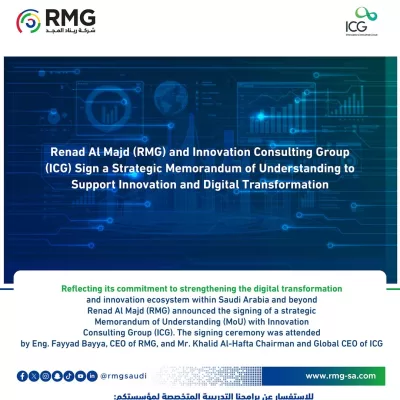Blog Body

Innovation is considered the lifeblood of startups; it is the primary driver of their growth and sustainability in a dynamic and competitive business environment. However, the journey of innovation is not without its challenges, which can hinder progress and threaten success. Understanding and deeply analyzing these challenges is a crucial step towards developing effective strategies to overcome them and turn them into opportunities for growth and prosperity.

Key Challenges Hindering Innovation in Startups

Cultural and Organizational Factors: A Stifling Work Environment
Organizational culture plays a critical role in the success or failure of innovation efforts within startups. If the cultural environment does not encourage calculated risk-taking, experimentation, and the free exchange of ideas, it negatively impacts the organization’s ability to generate new concepts and turn them into tangible realities. Among the cultural and organizational factors that hinder innovation are:
- Fear of Failure: The fear of making mistakes or not achieving desired results discourages employees from proposing new ideas.
- Excessive Centralization in Decision-Making: When authority is concentrated in the hands of a few individuals, it reduces employee participation in the innovation process and hinders the flow of ideas.
- Lack of Effective Communication: The absence of open and transparent communication channels between management and employees impedes the exchange of ideas and information, reducing opportunities for collaboration and innovation.
- Resistance to Change: Some employees may resist new changes and innovative ideas, especially if they threaten their current status or alter their usual work methods.

Resource Constraints: Financial and Human Limitations
The lack of financial and human resources is one of the most significant challenges facing startups, limiting their ability to invest in research, development, and new experiments. Manifestations of resource constraints include:
- Limited Funding: Startups may struggle to secure the necessary funding to develop their innovative ideas and transform them into marketable products or services.
- Lack of Skills and Competencies: Startups may lack the necessary skills and competencies to implement innovative projects, particularly in complex technical and scientific fields.
- Time Constraints: Employees in startups may face intense work pressures due to a shortage of staff and a high volume of tasks, reducing the time available for creative thinking and innovation.

Intense Competition: Increasing Market Pressures
Intense competition in the market places significant pressure on startups, forcing them to innovate continuously to remain competitive and attract customers. Aspects of this fierce competition include:
- Constant Emergence of New Competitors: The market continuously sees the entry of new competitors, making it increasingly difficult to maintain a specific market share.
- Rapid Technological Advancement: The fast pace of technological development requires startups to constantly adapt to new technologies and innovate to meet changing market needs.
- Price Pressures: Intense competition may compel startups to lower the prices of their products or services, which can reduce their profits and hinder their ability to invest in innovation.

Challenges Related to Intellectual Property Protection
Startups may face difficulties in protecting their intellectual property for innovative ideas, especially in an era where copying and imitating products and services is easy in the digital age.

Strategies to Overcome Challenges and Enhance Innovation
Startups can overcome these challenges by adopting integrated strategies focused on the following aspects:
- Developing an Innovation Culture: Startup leaders should work to build an organizational culture that encourages creativity, calculated risk-taking, experimentation, collaboration, and idea exchange. This can be achieved by:
- Encouraging employees to propose and test new ideas.
- Creating a safe work environment that allows for mistakes and learning from them.
- Providing open and transparent communication channels between management and employees.
- Celebrating innovative achievements and recognizing contributors.
- Efficient Resource Management: Startups must manage their financial and human resources effectively and focus on investing in innovative projects that yield the highest return on investment. This can be accomplished by:
- Seeking alternative funding sources, such as business incubators, investment accelerators, and crowdfunding.
- Outsourcing some tasks or projects.
- Focusing on developing internal skills and competencies through training and development.
- Building Strategic Partnerships: Startups can form strategic partnerships with other companies, research institutions, or universities to leverage their expertise, resources, and capabilities in the field of innovation.
- Protecting Intellectual Property: Startups should take necessary measures to protect their intellectual property for innovative ideas by registering patents, trademarks, and copyrights.
- Focusing on Customer Needs: Startups should concentrate on understanding customer needs and expectations, developing innovative solutions that effectively meet these needs.
- Adopting Modern Innovation Methodologies: Startups can adopt modern innovation methodologies, such as the “Lean Startup” methodology and “Design Thinking,” to accelerate the innovation process and reduce risks.

Key Factors Contributing to the Success of Innovation Efforts in Startups
Startups face significant challenges on their innovation journey, but by understanding these challenges and adopting effective strategies to overcome them, they can transform them into opportunities for growth and prosperity. Building an organizational culture that encourages innovation, managing resources efficiently, and focusing on customer needs are among the most critical factors contributing to the success of innovation efforts in startups.






























